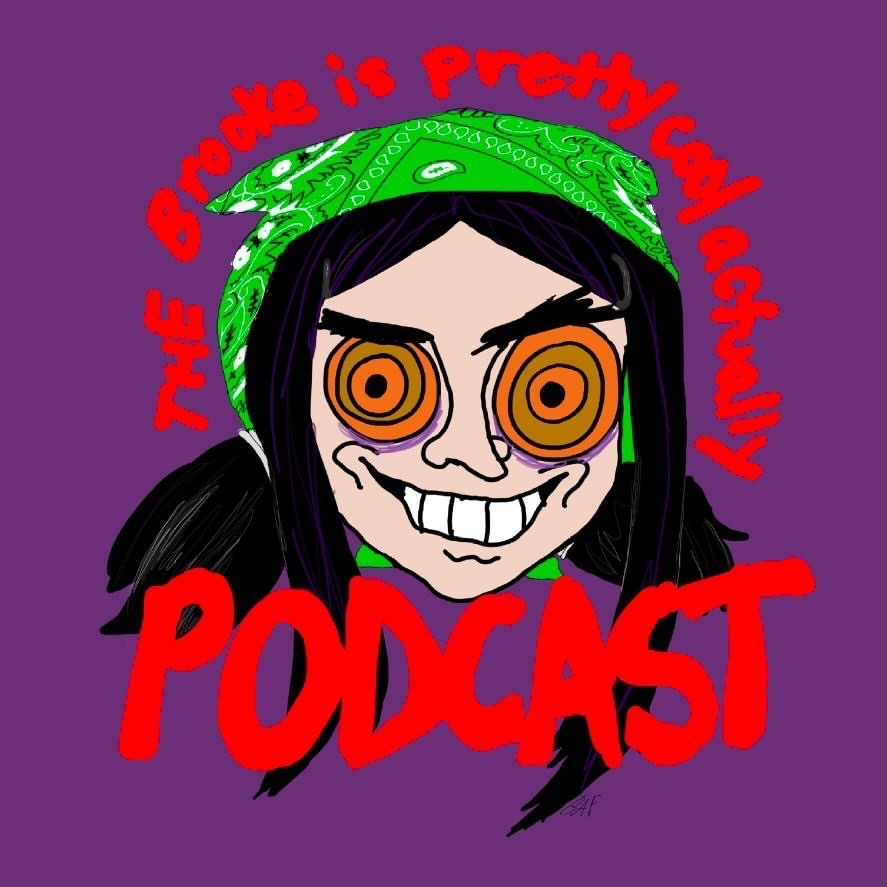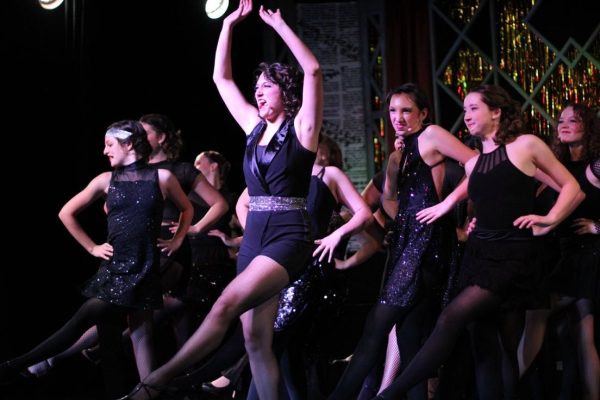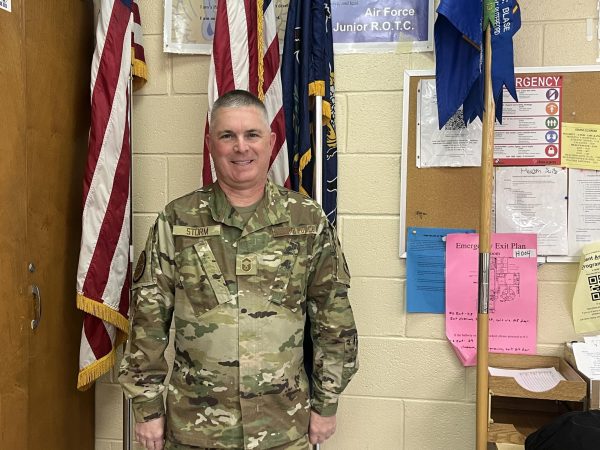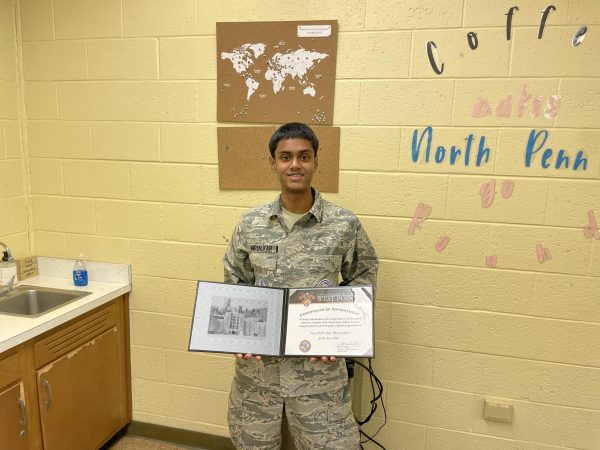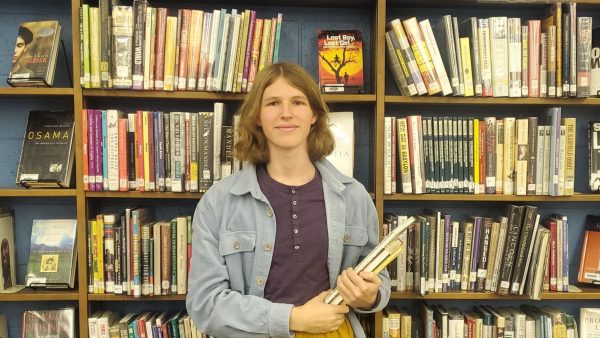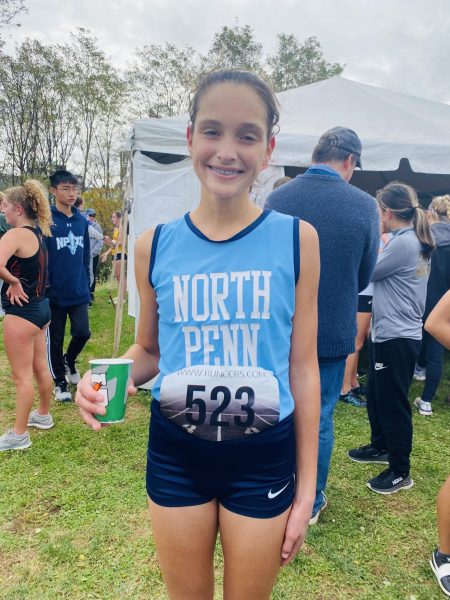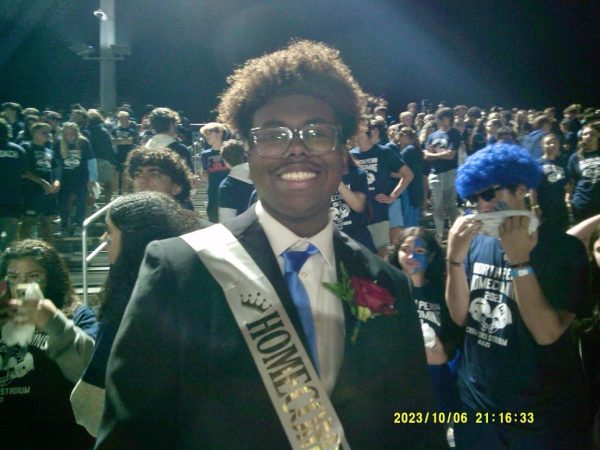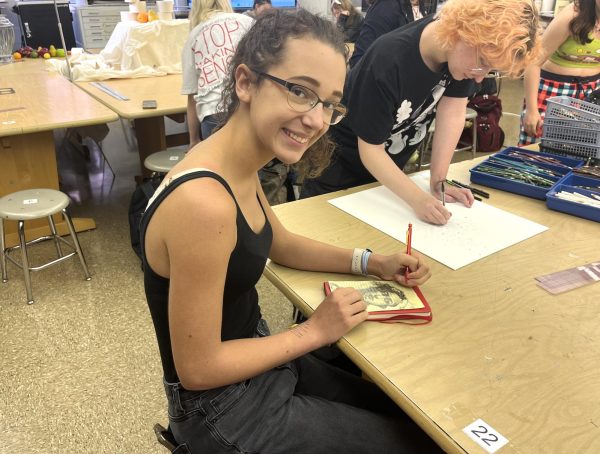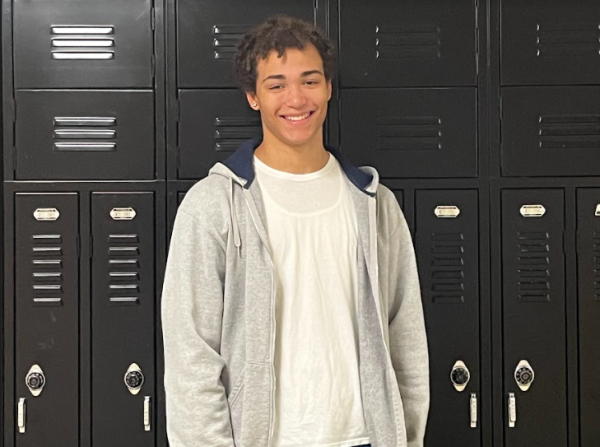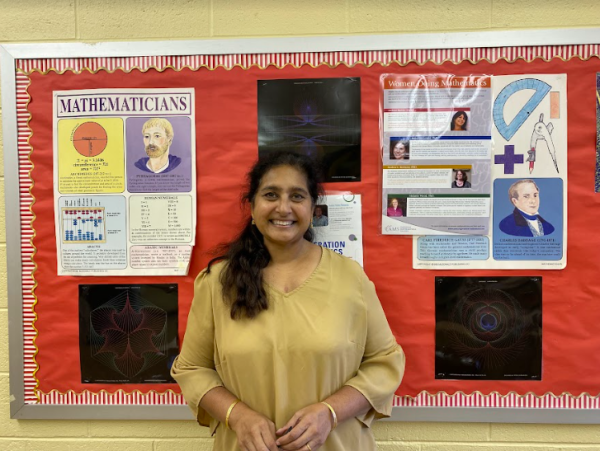The Brooke is Pretty Cool Actually Podcast is… actually pretty cool
The Brooke is Pretty Cool Actually Podcast was created with the sole purpose of allowing Feenie to talk to performers like she used to in the pre-Covid days. Now, it’s a platform that helps small bands and businesses get recognition, and for Feenie to connect with people around her.
TOWAMENCIN — The crowd roars as the performers pour their heart and soul into their last song of the night. And even when the performance is over, the night is more lively than ever. Goosebumps dance across your skin as you recall the entire experience you have just endured within the last few hours and after taking a deep breath, you run out to catch the performers to ask them a few questions. For Brooke Feenie, this was a weekly ritual.
However, as the pandemic continued to show no signs of allowing concerts to resume, she began to miss meeting up with performers and talking to them. In an effort to recreate those experiences, she started the Brooke is Pretty Cool Actually Podcast in late May. Her podcast consists of interviews with bands, small business owners, and her friends, as well as interesting stories, opinions on music, and anecdotes about art and music.
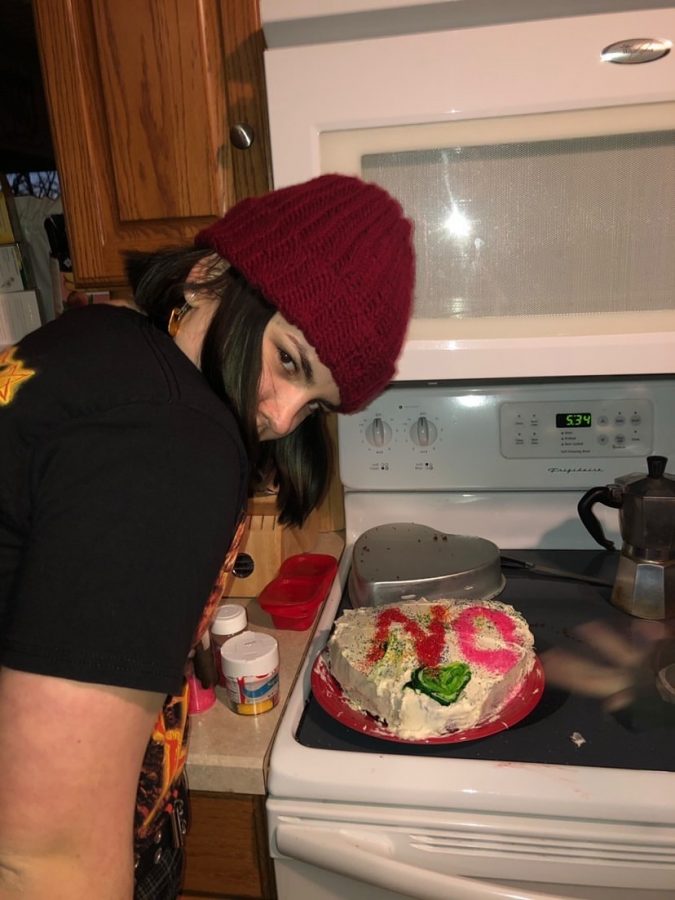
The name was inspired by her Instagram username. She had changed her name to it years ago when a friend mentioned it as a joke. It eventually stuck and became the perfect name for her podcast.
Her first episode was a conversation between her and her friend. There was no proper structure, no fancy set up—just two friends in a FaceTime call that was recorded. Over time, as she continued uploading more episodes, she started drafting up questions on a notebook before each one to better prepare herself and to have a more structured plan beforehand.
Feenie typically gets interviewees on her podcast by emailing bands and business owners and waiting for them to respond. Through these interviews, she is able to build connections and get more people to interview.
“I make sure they’re on board and we pick a day and I schedule something. It’s hard because my work schedule will be inconsistent, so I have to really think about it sometimes and be flexible with different time zones,” Feenie said. “If they’re a band, I listen to a bunch of their music, and I read up on a bunch of interviews with them and I try to look for questions that people ask all the time and then I don’t ask those because if I was that person, I would hate people asking me the same questions every time. I try to pick different questions and I’ve been getting better at that.”
Feenie has multiple interviews every week, so she’s prepared for her Sunday upload schedule. Interviews usually occur on a weeknight.
“I’ll open my book, I’ll have the music on, and I’ll just start writing down what comes to mind and crossing out other stuff and just building off other questions too and then I have my crazy mic that comes around and some nice headphones, I put that all on and then I wait for them. Then I just download it and I usually have a couple lined up, so I can just upload them week by week and not have to worry about it,” Feenie said.
After interviewing one of the guitarists from The Dead Milkmen, a punk rock band from Philadelphia, she received more listeners than ever before. People started reposting her content and she even ran a few ads.
“I think I once hit 1000 streams. That’s when I was kind of like, ‘This is building up,’” Feenie said. “I haven’t even looked at it in a while, but I know it’s still going up every week. There’s a good amount of new people, and it’ll be very subtle and then very extreme.”
Podcasts have become extremely popular recently as more and more people continue to start their own. This can often pressure creators to want to rise to the top and be the best, but Feenie remains confident in her work and doesn’t strive to be like others.
I feel like I don’t really care about being better than anyone else. I just like doing it and if people don’t like it, they don’t gotta listen.
— Brooke Feenie
“There was a time when I was worried about being better and I had somebody telling me, ‘You should ask questions like Joe Rogan,’ and I got stressed out about that, but then I was like, ‘I’m not Joe Rogan. I’m a 17-year-old girl, and I am doing my own thing.’ I feel like I don’t really care about being better than anyone else. I just like doing it and if people don’t like it, they don’t gotta listen,” Feenie said.
Balancing a podcast, schoolwork, band practice, and work can be difficult, but Feenie manages to do it. Her work schedule can be unpredictable at times, but she’s learned to be more flexible with the time she has. Depending on the time zones her interviewees are in, she can have interviews early in the morning or late at night.
“Honestly, I don’t know how I do it sometimes. The latest I ever did a podcast was at 10:30 P.M., on a Tuesday, and that really sucked because I was so tired. Usually, I pick a day and nobody can ask me to do stuff because [she’ll be having her interviews]. Sometimes, I squeeze in stuff before my shift or between other stuff. I always find a way to do something and people are always really friendly if I have to reschedule too,” Feenie explained.
Once she has her interviews, she edits them on the same day she uploads them, which is Sunday. She’ll add her intro song that her friend from Germany made for her and edit the episode in Audacity, and audio editing software. Once she’s finished editing, she’ll upload it and make a flyer. This can normally be a two to three-hour process.
Since May, Feenie’s podcast has improved immensely. From the audio to the questions she asks to her setup, she has taken major strides in perfecting her craft. She has purchased better equipment like a professional microphone and also gained a better knowledge of the software she currently uses by asking a friend to help her out. She has also gained more confidence in talking to others.
“I feel like I got more comfortable with talking to people too, so it’s less than just me being nervous and me just talking. Sometimes I still get nervous, but it’s not as noticeable as it used to be. When I first started, I used to ask people a lot of the same questions, but I feel like now I’m shaking it up more and it still has a structure, so that’s different, but in a good way,” Feenie explained.
When her friends and family heard about her podcast, they were extremely excited and supportive. Some, who were never big on podcasts in the first place, started listening to hers. They even began suggesting new people for her to interview and helped her contact them.
As of now, she currently has 44 episodes. Some of her favorite interviews by far include one where she spoke to Jason Navarro from The Suicide Machines and another with Joe Jack Talcum and Rodney Anonymous from The Dead Milkmen. She loves making connections with the people she interviews and getting to relive her favorite experiences that she would have had at concerts pre-Covid.
“In general, I just like making new friends. It’s just so much fun to talk to people and laugh with them because we all need something positive in this time period as they say,” Feenie said. “I like meeting and helping these people out, but it’s also helping me build a lot of connections for my band. When things ease up and we can tour, for the first time, I have bands that I’ve talked to who offered me a spot, so it’s kind of like building my future, which I like.”
In just a few months, Feenie’s podcast will have been up for a year. Prior to starting her podcast, she only knew what the podcast world was like from the perspective of a listener. Now, she understands it from the perspective of a creator.
It’s really nice because it felt like having a friend over, even though they were over the computer.
— Brooke Feenie
“I learned that a lot more people listen to podcasts than I thought. I thought that people don’t really listen to it anymore, but I just kind of [made one] anyways. I also learned that people can be really vulnerable, and I think that’s a beautiful thing,” Feenie explained. “I’ve had people tell me I bring that out in them, which is very humbling for me. I didn’t know I could do that and people told me about their struggles with mental health. Somebody told me about their divorce. People tell me all this stuff, and I think it really helped keep me grounded during quarantine because early last year, it was so easy to feel isolated; everybody had to stay inside and I think talking to those people just gave me an outlet to the outside world and reminded me that there are humans out there and they have feelings. It’s really nice because it felt like having a friend over, even though they were over the computer.”
“People tell me really great stories and then I’ll go off the podcast and make a song or something because of something they tell me. I just get really inspired by most of the people I talk to,” Feenie added.
“I’ve had people tell me, ‘I listen to this when I play Minecraft’ or like, ‘When I’m sad, it helps me feel like I’m just hanging out with some friends or something,’ and so I really want people to be able to get that comfort but also learn about the music industry and discover new music and new artists because there are so many bands that I love that I feel like people just don’t know about. If I can do this and introduce it to other people without pushing it in their face too much, I think that that can just help everybody grow a little bit,” Feenie explained.
Feenie encourages those interested in starting a podcast to go for it and keep up with it if they really enjoy it.
“I say, just do it, but if you want it to go somewhere, you have to stay committed because I could count five podcasts on my hands that just start and then after two episodes are done. For me, I’m just all about sticking with it and getting stuff done,” Feenie said. “My advice for people doing it is if you’re going to do it, stay with it because it’s worth it.”

The podcast not only gave Feenie an outlet to talk to others about shared passions but also allowed her to grow as a person beyond the podcast.
“I’m really glad because around the time when I started, I wasn’t as confident as I am now. I got bullied last year and it was really bad, so I think having this podcast helped me regain confidence in myself. I made so many friends that helped me so much because I needed that at the time. I feel like such a better person now, and I’m really proud of myself,” Feenie said. “[The podcast] helped me so much and I’m really glad that I ended up sticking with it for those reasons. I think me one year ago would be very impressed. I’ve grown so much as a person and I know this is going to help me in the future, so I’m just proud of myself.”
Check out Brooke’s podcast!
Support Brooke and her band Froggy


